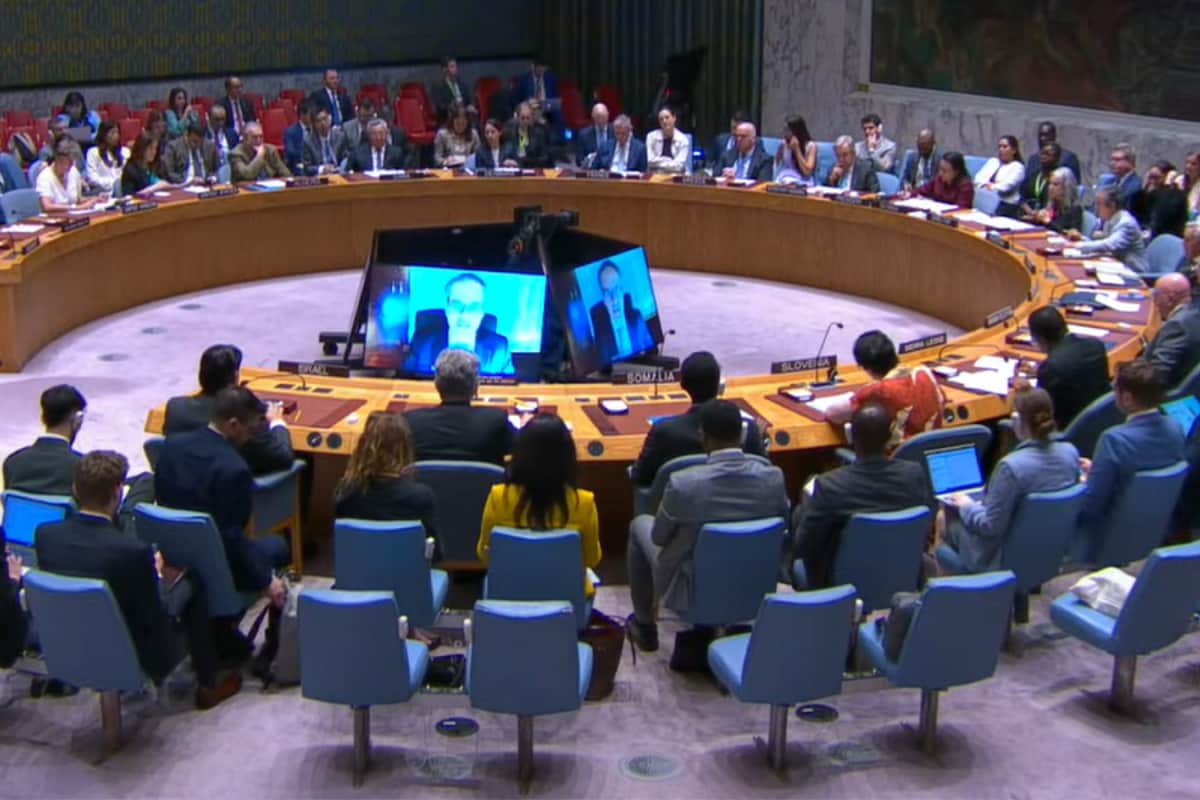

India has downplayed Pakistan's role within the United Nations Security Council (UNSC), characterizing it as largely "ceremonial" with limited real influence. This assessment comes after Pakistan's recent appointments as Chair of the UNSC 1988 Sanctions Committee (Taliban Sanctions Committee) and Vice-Chair of the Counter-Terrorism Committee for 2025. India suggests that Pakistan's responsibilities in these roles are mainly logistical and procedural.
According to India's Minister of State (MOS) Kirti Vardhan Singh, Pakistan's function as Chair of the UNSC 1988 Sanctions Committee primarily involves convening and facilitating meetings, as well as coordinating among members to implement the committee's mandate under Resolution 1988 (2011). He emphasized that all decisions are made by consensus, implying that Pakistan's individual influence is limited. Similarly, as Vice-Chair of the Counter-Terrorism Committee, Pakistan's role is viewed as assisting the Chair with logistical and procedural preparations to ensure the smooth functioning of the committee.
This assessment comes against the backdrop of Pakistan's election as a non-permanent member of the UNSC for the 2025-2026 term. While this is Pakistan's eighth time serving on the Security Council, India suggests that the allocation of chairships and vice-chairships for Security Council subsidiary bodies is a routine annual exercise based on consensus among its members. The Indian government stated that such positions are intended to support the implementation of mandates set out in relevant UNSC resolutions and that no individual member can unilaterally influence the agenda or contents because decisions are made by consensus.
Furthermore, India's Permanent Representative to the UN, Ambassador Parvathaneni Harish, criticized Pakistan during a UNSC meeting, describing it as "steeped in fanaticism and terrorism" and a "serial borrower" from the IMF. He asserted that there should be a "serious cost" to nations that foment cross-border terrorism. This statement followed a recent terrorist attack in Pahalgam, Jammu and Kashmir, which led India to launch "Operation Sindoor," targeting terrorist camps in Pakistan. India accused Pakistan of supporting cross-border terrorism, a charge Pakistan denies.
The broader context of India-Pakistan relations remains tense. Despite a ceasefire agreed upon in May 2025 after a period of military clashes, tensions persist, particularly regarding the disputed territory of Kashmir. India's decision to hold the Indus Waters Treaty "in abeyance" and the possibility of further terror attacks contribute to the strained relationship. While Pakistan is expected to raise the issue of Kashmir during its UNSC presidency, India has a strategy in place to counter Pakistan's narrative.
Despite the largely ceremonial role, Pakistan's Ambassador to the UN, Asim Iftikhar Ahmad, has outlined an agenda that includes a focus on multilateralism and peaceful dispute resolution. Pakistan is also expected to host high-level events to promote cooperation between the UN and the Organization of Islamic Cooperation (OIC), potentially raising issues related to the Muslim world, including Palestine, Kashmir, and the Rohingya crisis.
In light of these factors, India's downplaying of Pakistan's UNSC role reflects the complex and often adversarial relationship between the two countries. While Pakistan's presence on the UNSC provides a platform for international engagement, India views its influence as limited by the consensus-based decision-making processes and the broader geopolitical dynamics at play.